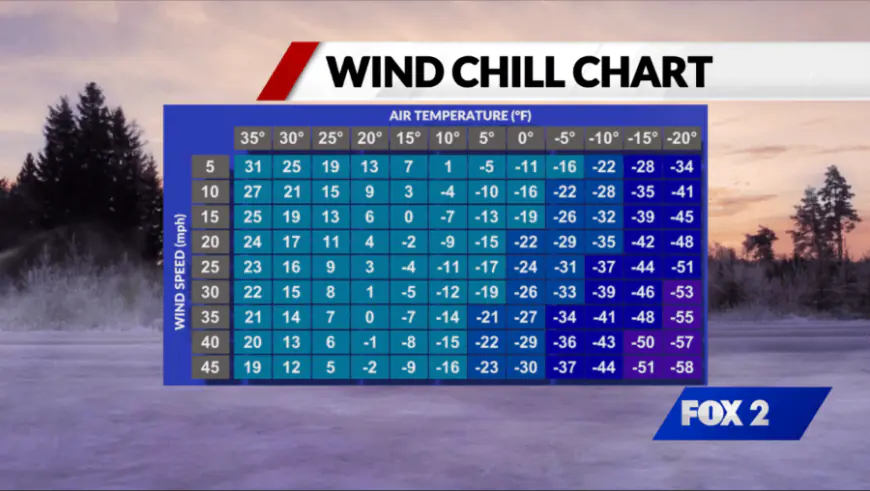Understanding wind chill: Why gusty days feel colder than they are
When the wind blows during the deep cold of winter, we feel frigid. But it's not the wind itself that is cold. Rather, it is what the wind does to the human body that makes us feel colder.

ST. LOUIS - When the wind blows during the deep cold of winter, we feel frigid. But it's not the wind itself that is cold. Rather, it is what the wind does to the human body that makes us feel colder.
The human body is warm—98.6 degrees—and it radiates that heat out in every direction like a fire radiates heat. On a day with little if any wind, a portion of that heat sticks close to our skin and helps to keep us warm.
But that is not the case on windy days. Those gusty winter winds take that layer of heat near the skin and rip it away from the body. With that layer of near-skin warmth blown away, the body tries to replace it with more heat from the body, which again gets ripped away. It's a continuing process that over time can quickly pull heat out of the body and cause us to feel very cold—even colder than the air around us.
The formula we use to compute the wind chills is long and complex. It’s easiest to figure out using a wind chill chart like the one below. Just find where the wind speed and air temperature intersect, and you get the wind chill.
For Thursday morning, that value will be very close to zero!
What's Your Reaction?










































































































